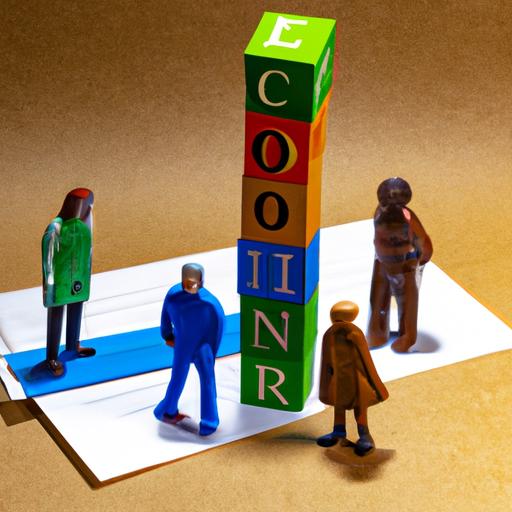Introduction
Have you ever found yourself dreading the casual conversations and water cooler chit-chat at work? While socializing at work can have its benefits, not everyone feels comfortable or productive in social settings. If you prefer to focus on your tasks and maintain professional boundaries, you’re not alone. In this article, we’ll explore the importance of socializing at work and delve into reasons why some individuals may want to avoid it.
Importance of Socializing at Work
Socializing at work plays a significant role in fostering teamwork, collaboration, and building strong professional relationships. Engaging in friendly conversations with colleagues can create a positive work environment, enhance morale, and boost job satisfaction. It can also lead to increased productivity and creativity, as collaborative interactions often spark new ideas and perspectives. Socializing can even facilitate networking and career opportunities, as strong professional relationships can open doors to new connections and mentorship.
Reasons to Avoid Socializing at Work
Despite the advantages of workplace socialization, there are valid reasons why someone may choose to limit their engagement in social activities. Personal preferences and introverted nature might make some individuals feel drained or anxious in social settings, preferring solitude and focusing on their work. Others may prioritize work productivity and efficiency, finding excessive socializing distracts them from completing tasks and meeting deadlines. Additionally, maintaining professional boundaries is crucial for some, as they prefer to keep personal and work lives separate.
In the following sections, we’ll explore strategies for avoiding socializing at work while maintaining a professional atmosphere. By setting clear boundaries, communicating effectively, and finding a balance, you can navigate the workplace in a way that aligns with your preferences and work style. So, let’s delve into these strategies and discover how you can create a harmonious equilibrium between work and social interactions.
Understanding the Effects of Socializing at Work
Positive impacts on teamwork and collaboration
When individuals socialize in the workplace, it promotes a sense of camaraderie and fosters teamwork among colleagues. Engaging in casual conversations and social activities allows team members to get to know each other on a personal level, breaking down barriers and building trust. This, in turn, leads to improved communication, cooperation, and synergy within the team. When colleagues feel comfortable and connected, they are more likely to collaborate effectively, share ideas, and work towards shared goals.
Building strong professional relationships
Socializing at work is an opportunity to forge strong professional relationships that extend beyond the confines of the office. By interacting with colleagues on a personal level, you can develop a deeper understanding of their strengths, interests, and areas of expertise. These connections can pave the way for mentorship, collaboration on projects, and future career growth. Strong professional relationships also create a supportive network, enabling individuals to seek advice, share knowledge, and navigate challenges together.
Boosting employee morale and job satisfaction
A workplace that encourages socializing can significantly boost employee morale and job satisfaction. Engaging in friendly conversations, celebrating milestones, and participating in team-building activities creates a positive and enjoyable work environment. Feeling valued and connected to colleagues enhances job satisfaction, leading to higher levels of motivation and increased productivity. Moreover, socializing provides a break from the demands of work, reducing stress and promoting overall well-being.
Understanding the positive effects of socializing at work allows us to appreciate its significance in fostering a collaborative and fulfilling work environment. However, if you find yourself seeking ways to limit social interactions, the next section will explore strategies to help you maintain professional boundaries while still contributing to a harmonious workplace.
Reasons to Avoid Socializing at Work
Personal Preferences and Introverted Nature
We all have unique personalities that shape our preferences for social interaction. For introverts, engaging in excessive socializing can be mentally and emotionally draining. They may find solace and energy in moments of solitude or by working independently. It’s important to recognize and respect these differences in personality and understand that not everyone thrives in a highly social work environment.
Focus on Work Productivity and Efficiency
While workplace socialization can enhance relationships and morale, it can also be a potential source of distraction. Some individuals value their time and strive for optimal productivity and efficiency. Engaging in too many social interactions during work hours can divert their attention away from important tasks, hindering their ability to accomplish goals and meet deadlines. By avoiding excessive socializing, these individuals can maintain their focus and achieve higher levels of productivity.
Maintain Professional Boundaries
Maintaining professional boundaries is vital for some individuals, as they prefer to keep their personal and work lives separate. They believe that a clear distinction between professional and personal relationships fosters a more objective and unbiased work environment. By avoiding excessive socializing, they can create a professional atmosphere that values respect, professionalism, and task-oriented interactions.
Remember, it’s essential to understand that these reasons for avoiding socializing at work are valid and should be respected. Not everyone has the same preferences or work styles. In the next section, we’ll delve into effective strategies for avoiding socializing while still maintaining a positive and supportive work environment.
Strategies for Avoiding Socializing at Work
Setting Clear Boundaries and Expectations
One effective strategy for avoiding excessive socializing at work is to establish clear boundaries and expectations. Communicate your preferences and work style to your colleagues in a respectful and professional manner. Let them know that while you value their company, you prefer to focus on your tasks and limit social interactions during work hours. By setting these boundaries, you create a mutual understanding that allows you to maintain your productivity while still fostering positive relationships.
Prioritizing Tasks and Time Management
Another key strategy is to prioritize your tasks and manage your time effectively. Create a daily or weekly to-do list and allocate specific time slots for each task. By staying organized and focused, you can minimize distractions and limit the time available for socializing. Prioritizing your work will help you maintain a sense of accomplishment and prevent feelings of guilt or anxiety that may arise from neglecting important tasks due to excessive socializing.
Utilizing Personal Workspaces Effectively
Utilizing your personal workspace strategically can also help you avoid unnecessary socializing. Arrange your desk in a way that minimizes distractions and sends a signal that you are focused on your work. Position yourself away from high-traffic areas or communal spaces to reduce the likelihood of casual conversations. If possible, use headphones or hang a “Do Not Disturb” sign to indicate your need for uninterrupted work time. By creating a dedicated and focused workspace, you can send a clear message to your colleagues that you are committed to your tasks.
In the next section, we will discuss effective communication strategies to maintain professional relationships while avoiding excessive socializing. By finding the right balance, you can create harmony in your workplace interactions. So, let’s dive into these communication techniques and discover how to navigate social situations with grace and professionalism.
Communicating Boundaries Effectively
In order to avoid socializing at work while maintaining positive relationships with colleagues, effective communication becomes crucial. Here are some strategies to help you communicate your boundaries in a respectful and considerate manner.
Open and Honest Communication with Colleagues
Start by having open and honest conversations with your colleagues about your preferences and work style. Let them know that while you value their company, you prefer to focus on your tasks during work hours. By explaining your perspective and goals, you can create understanding and set clear expectations.
Polite Decline of Social Invitations
When social invitations arise, it’s important to decline them politely without coming across as rude or disinterested. Express your gratitude for the invitation and kindly explain that you have prior commitments or prefer to use your break time for personal relaxation. By maintaining a gracious tone, you can prevent any misunderstandings and maintain positive relationships.
Suggesting Alternative Ways of Bonding Outside of the Workplace
To show your willingness to bond with colleagues outside of work, suggest alternative ways to connect that align with your preferences. For example, propose a lunch or coffee break in a nearby café where you can have a quick catch-up without disrupting your workflow. This way, you can still engage in social activities but within boundaries that suit your comfort level.
Remember, effective communication is key to maintaining professional relationships while respecting your need for solitude and focus. By being open, polite, and offering alternative ways to connect, you can strike a balance that allows you to maintain your productivity while still fostering positive interactions with your colleagues.
Stay tuned for the next section, where we’ll explore strategies for balancing socializing and professionalism in the workplace.
Balancing Socializing and Professionalism
Finding a middle ground between socializing and professionalism is essential for a harmonious work environment. While you may wish to avoid excessive socializing, completely isolating yourself can hinder your professional growth and relationships. So, how can you strike the right balance?
Importance of Finding a Middle Ground
Balancing socializing and professionalism allows you to reap the benefits of both worlds. Participating selectively in social activities can help you build rapport with colleagues, foster collaboration, and create a supportive work atmosphere. It also enables you to stay informed about office dynamics, which can be valuable in understanding the organization’s culture and politics.
Participating Selectively in Social Activities
To strike the right balance, choose social activities that align with your interests and comfort level. Engage in team-building events, departmental celebrations, or occasional lunch outings. These activities provide opportunities for bonding, without overwhelming your personal boundaries. By participating selectively, you can maintain a positive presence in the workplace while still respecting your need for focused work time.
Encouraging Socializing in Appropriate Settings
While you may wish to avoid excessive socializing during work hours, it’s important to recognize the value of appropriate social interactions. Encourage socializing during designated breaks or after work hours. This can involve joining colleagues for coffee breaks, attending networking events, or organizing informal gatherings outside of the workplace. By creating boundaries around socializing, you can balance professional duties and maintain a healthy work-life integration.
In conclusion, navigating workplace socializing is all about finding the right balance. By selectively participating in social activities and encouraging appropriate social interactions, you can maintain professional boundaries while still fostering positive relationships with colleagues. Remember, it’s not about completely avoiding socializing, but rather prioritizing your work and personal preferences. So, go ahead and find that equilibrium that allows you to thrive both professionally and socially in your workplace.



